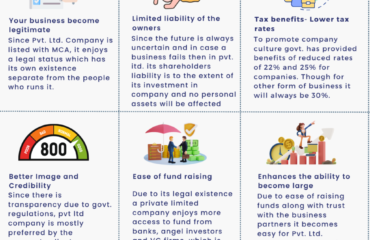To foster a dynamic business environment and stimulate employment growth, the Indian government offers a range of subsidies and incentives for businesses. Whether overseeing a startup or managing an established enterprise, Indian startups need to be well-versed in these subsidies. This knowledge ensures that capital expenditure is optimized. It leads to reduced capital costs, lighter interest burdens, and faster achievement of break-even points. Here, we highlight seven essential subsidies for Indian startup should be aware of.
Credit Linked Capital Subsidy Scheme (CLCSS)
Due to a lack of awareness about access to capital, quality standards, and modern technology, many Small-Scale Industries (SSI) in India persist in manufacturing goods and products with outdated technology and plant & machinery. However, the globalization and liberalization of the market have made it imperative for these industries to upgrade and modernize their equipment to ensure survival and growth. In an effort to facilitate the technology upgradation of SSI in India, the Ministry of Small-Scale Industries operates a scheme for technology upgradation called the Credit Linked Capital Subsidy Scheme (CLCSS).
The CLCSS scheme of subsidies for Indian Startup offers a 15% capital subsidy to SSI units on institutional finance they avail for the induction of well-established and improved technology in many of the sub-sectors/products approved under the scheme, for a loan of up to Rs.1 crore.
Subsidy for Establishing Cold Chain
In order to reduce the wastage of perishable agricultural produce, enhance the shelf life of food products, increase farmers’ income, and create surplus for the export of agro & processed foods, another subsidy for Indian Startups is a subsidy for establishing a cold chain is provided by the Ministry of Food Processing Industry.
The objective of this subsidy for Indian Startup is to offer financial assistance for integrated cold chain and preservation infrastructure facilities without any break from the farm gate to the consumer. It encompasses pre-cooling facilities at production sites, reefer vans, mobile cooling units, as well as value addition centres, including infrastructural facilities like processing/multi-line processing/collection centres, etc., for horticulture, organic produce, marine, dairy, meat, and poultry, among others. Financial assistance (grant-in-aid) of 50% of the total cost of plant and machinery and technical civil works in general areas and 75% for the Northeast region, including Sikkim and difficult areas (J&K, Himachal Pradesh, and Uttarakhand), subject to a maximum of Rs.10 crore, is provided under this scheme.
Technology Upgradation Fund Scheme (TUFS) – For Textile Sector
The Textiles sector, which contributes about 14% to industrial production, 4% to the GDP, and 17% to the country’s export earnings, is the second-largest provider of employment after agriculture. It provides direct employment to over 35 million people, including a substantial number of SC/ST and women. Therefore, the Ministry of Textiles, through its flagship subsidy for Indian Startup in textile, the Technology Upgradation Fund Scheme (TUFS), has helped the industry scale new heights and improve technology to match global standards.
Under the TUFS Subsidy for Indian Startup, financial institutions or banks charge interest on textile technology upgradation projects, and the Ministry of Textiles provides Interest Reimbursement of 5%. Additionally, the scheme also offers margin money and/or capital subsidy for investments in various types of textiles manufacturing equipment such as power looms, common effluent treatment plants, garment machinery, machinery for technical textiles, handlooms, etc.
Subsidy for Acquiring Quality Management System
In response to the competitive global market, the implementation of quality standards has become mandatory for MSME units to successfully compete and improve profitability by optimizing internal processes. In an effort to increase the adoption of quality standards by Indian MSME units, the Government of India provides a subsidy to Indian startups, wherein the cost of acquiring ISO Certifications like ISO-9000 and ISO-14001 is subsidized.
The scheme allows all units with an SSI Registration to receive reimbursement of charges for acquiring ISO-9000/ISO-14001 certifications to the extent of 75% of the expenditure, subject to a maximum of Rs.75,000/- in each case.
Interest Subsidy for MSME Units in Gujarat
In an effort to boost industrial investment and make the state more investor-friendly, the Gujarat State Government provides interest subsidies to MSME units making new investments or existing units investing in capacity addition, diversification, or modernization of machinery to newer technology. MSMEs, considered the backbone of any economy, are the focus of this subsidy, aimed at positioning Gujarat among the highly industrialized states in the country today.
Through this subsidy for Indian startups, micro-enterprises can avail of an interest subsidy of up to 7%, while small and medium enterprises can receive a subsidy of 5%. An additional 1% interest subsidy to Indian startups is granted to youth under 35 years of age for their first project, with priority given to woman entrepreneurs. The maximum amount of interest subsidy provided per annum is Rs.25 lakhs for up to a period of 5 years.
Capital Subsidy for Solar Lighting and Small Capacity PV Systems
To promote sustainable energy generation and address India’s energy security challenge, the Government of India has launched the Jawaharlal Nehru National Solar Mission (JNNSM) a subsidy for Indian startups. The JNNSM offers a range of subsidies and soft loans to support the growth of solar energy generation in the nation.
Through the capital subsidy for Indian Startups for solar lighting and small capacity PV systems, the JNNSM provides a capital subsidy of up to 40% of the approved unit cost (benchmark cost) for solar lighting systems and small capacity Photovoltaic systems. Special category states, namely NE, Sikkim, J&K, Himachal Pradesh, and Uttarakhand, can avail a capital subsidy of 90% of the benchmark cost.
Support for International Patent Protection in Electronics & IT
The Department of Information Technology, MCIT, GOI, has initiated a subsidy for Indian startups. It provides financial support to SMEs and Technology Start-Up units for international patent filing. It aims to encourage indigenous innovation and recognize the value and capabilities of global IP, capturing growth opportunities in the field of information technology and electronics.
Through this subsidy for Indian startups, all patent processing costs, including Attorneys’ Fees, Patent Office filing fees, Examination Fees, Patent Search cost, and additional cost for entering National Phase up to grant/issue, are subsidized. The scheme offers reimbursement of up to 50% of the total patent cost, with support limited to Rs.15 lakhs or 50% of the total expenses incurred on filing each invention, whichever is less.




